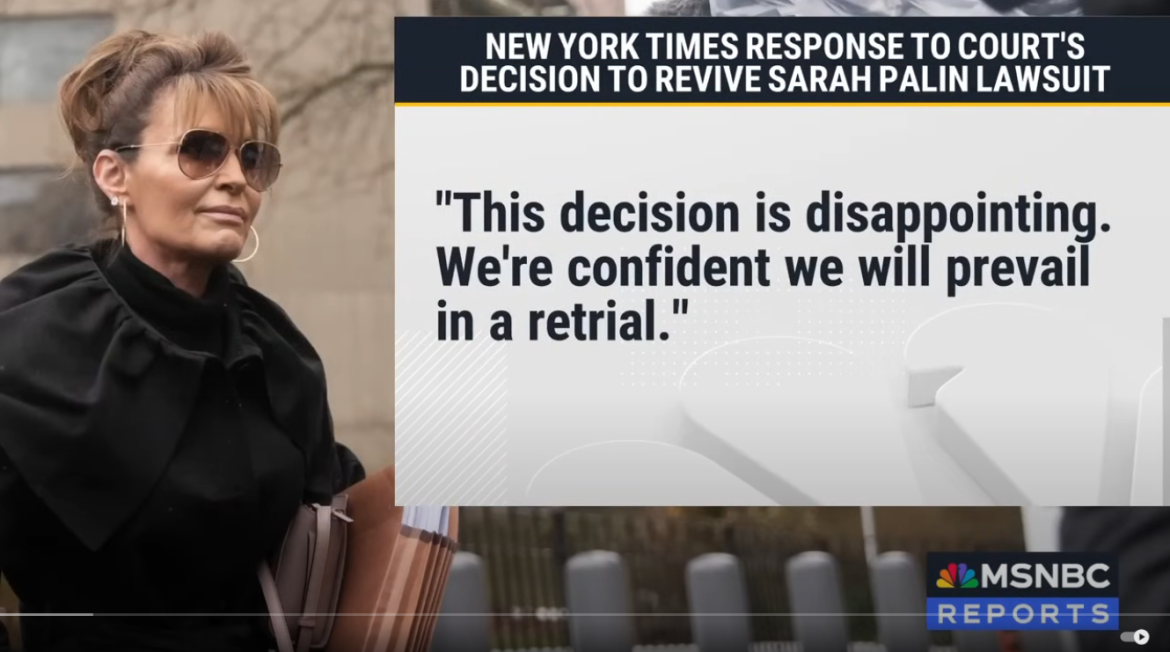Former Alaska Governor and Republican vice-presidential candidate Sarah Palin has been granted a new trial in her defamation lawsuit against The New York Times. An appeals court has ruled that the judge in the original trial made several errors, warranting a retrial of the high-profile case that centers on a 2017 editorial linking Palin to a 2011 mass shooting in Arizona.
The lawsuit stems from a June 2017 editorial published by The New York Times titled “America’s Lethal Politics,” which suggested a connection between Palin’s political action committee and the 2011 shooting that seriously injured former Congresswoman Gabrielle Giffords and killed six others. The editorial claimed that imagery from Palin’s PAC, which placed crosshairs over certain electoral districts including Giffords’, incited the violence. The Times later issued a correction acknowledging no established link between the PAC’s materials and the shooting.
In 2022, a jury unanimously found that The New York Times and its former editorial page editor, James Bennet, were not liable for defamation, concluding that Palin’s legal team failed to prove that the newspaper acted with “actual malice,” the standard required for public figures in defamation cases. However, the recent decision by the appeals court indicates that the trial judge committed procedural errors that may have influenced the outcome, including improperly instructing the jury and making premature judgments about the evidence presented.
Palin’s legal team welcomes the appeals court’s decision, viewing it as an opportunity to hold The New York Times accountable for what they argue was reckless and damaging journalism. “We are pleased that the appeals court recognized the significant errors in the initial trial and are confident that justice will be served in the retrial,” said a spokesperson for Palin.
Conversely, The New York Times has expressed disappointment over the ruling. A spokesperson for the newspaper stated, “We are disappointed by the court’s decision to grant a retrial. We stand by our journalists and will continue to vigorously defend against these claims.” The Times maintains that the original editorial mistake was not made with malicious intent and was promptly corrected.
Legal experts note that the retrial will once again bring to the forefront the challenges public figures face in proving defamation under U.S. law, which requires demonstrating that false statements were made knowingly or with reckless disregard for the truth. The case is also significant in the ongoing discourse about media responsibility and freedom of the press, especially in a polarized political climate.
The date for the new trial has not yet been set, but it is expected to draw considerable attention from both legal observers and the public, given Palin’s prominence and the implications for media organizations nationwide.



